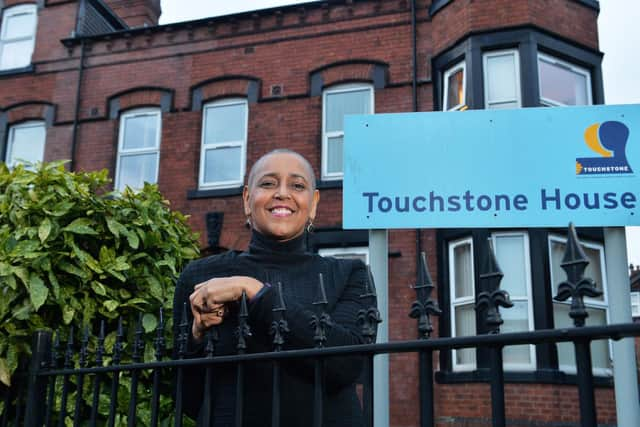How crisis cafes are providing a lifeline for those battling mental health issues in Leeds
and live on Freeview channel 276
It is a fact that it is, at the very least, reducing the numbers of people attending the city’s A&E departments when they are suffering a mental health crisis.
Long, dark days over winter can be more than literal. This time of year also sees a decline in people’s mental health and a spike in the demand on A&E and other medical services.
Advertisement
Hide AdAdvertisement
Hide AdHere, Emma Ryan takes a look at a service operating throughout the city where a cup of tea can help to make all the difference as part of the Yorkshire Evening Post’s series looking at winter health.


Demand
Three years ago, a 12-week pilot project was run in Leeds offering hot drinks, soups and ‘somewhere to go’ for rough sleepers and people struggling with “basic issues”.
By the second session, organisers Touchstone, who provide mental health and wellbeing services across the city, had been overwhelmed by the response as 75 people filtered through the doors.
With funding and backing from the city’s health organisations and Leeds City Council, there are now three Well-Bean ‘crisis cafes’ which, between them are open every day of the week from 6pm to midnight, offer a safe place for people with a mental health issues - from feeling anxious to suicidal thoughts.


How it works?
Advertisement
Hide AdAdvertisement
Hide AdAt its most simple, there is a cafe with hot drinks and food, a room for social space, games, arts and crafts.
But there is also a much-needed one-on-one slot with a support worker, support and access to other services if needed.
There is also a phone line and text service that people can use to get in touch with staff as well as being able to turn up at the door.


Visitors on the night could also be referred by the police, the ambulance service or the Crisis Assessment Unit.
Advertisement
Hide AdAdvertisement
Hide AdKimberley Saggu is a service manager with Touchstone, whose chief executive is Alison Lowe.
Winter
Speaking to the Yorkshire Evening Post, she said: “The more services that have been shut down, the more people have to have a crisis to get what they need. We know that we have relieved the pressure on A&E. Coming here will lower the crisis and prevent people from going to A&E.
“And it [A&E] is not the right place if they are sat there for four hours. It might make the situation worse but then some people find it comforting to be in a safe place.
“The need is worse across winter months and not just Christmas, but winter is very hard.
Advertisement
Hide AdAdvertisement
Hide Ad“You have the cold, it is isolating, especially if you can’t get around. It exacerbates it and while we get quieter periods at Christmas, it gets busy soon afterwards.
“But we can’t predict what we will get or what the level of risk will be. We are just a small part in a big offering for Leeds – we are just part of the jigsaw.”
However, demand is so great that sometimes the cafes – based in Beeston, Lincoln Green and New Wortley – just cannot cope.
They have to turn people away because they are already full, operating at capacity depending on the level of risk of visitors that night or the mental health crisis is so bad that Leeds Survivor-Led Crisis Service have to be called in.
Case study
Advertisement
Hide AdAdvertisement
Hide AdOne visitor, who has been using the crisis cafe for just over a year, said: “It is a safe place, somewhere to go that I can just forget what is going on outside these four walls. We are like a dysfunctional family.”
Another added: “I have had a lot of personal things that have made my mental health decline and I just needed somewhere that I could talk about it that was not judgemental or immediate family. This is somewhere I can vent and find it easier to open up and converse about what is going on. I honestly don’t know where I would be if I was not coming here.
“I can go weeks without using it or, three or four days on the trot I will need to use it.”
Future
All three of the young women, who spoke anonymously to the YEP, said that as well as the immediate help the crisis cafe given them – they can start to see a clearer future.
Advertisement
Hide AdAdvertisement
Hide AdMs Saggu added: “Sometimes you can see someone once and that is all they need because we were able to alleviate the crisis for that night. But we can see that more people are equipped with the resources the less they need the cafe.
“That is what we are aiming for – resilience. Our visitors are resilient anyway. Some are resilient just by being alive.
“One of the most rewarding things of the whole job is to see that someone’s distress is not as distressing as it once was.”